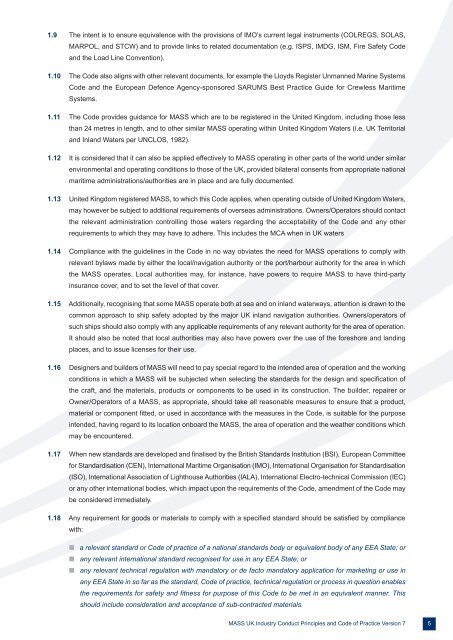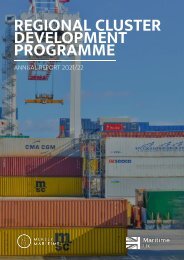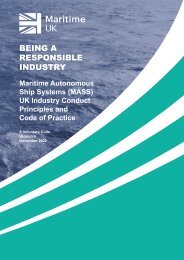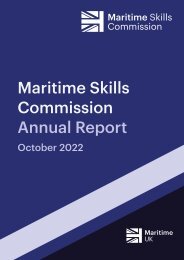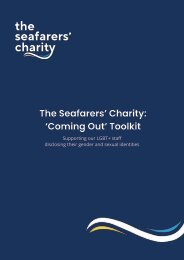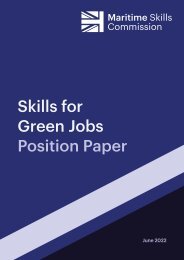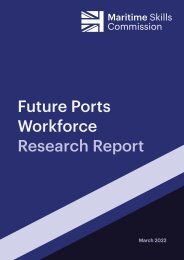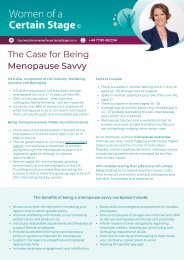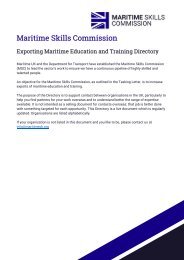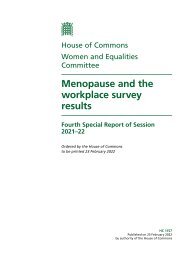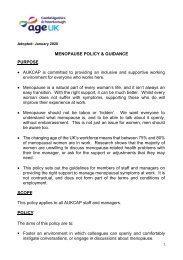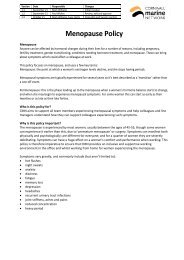COP_2023_V7_pages
Create successful ePaper yourself
Turn your PDF publications into a flip-book with our unique Google optimized e-Paper software.
1.9 The intent is to ensure equivalence with the provisions of IMO’s current legal instruments (COLREGS, SOLAS,<br />
MARPOL, and STCW) and to provide links to related documentation (e.g. ISPS, IMDG, ISM, Fire Safety Code<br />
and the Load Line Convention).<br />
1.10 The Code also aligns with other relevant documents, for example the Lloyds Register Unmanned Marine Systems<br />
Code and the European Defence Agency-sponsored SARUMS Best Practice Guide for Crewless Maritime<br />
Systems.<br />
1.11 The Code provides guidance for MASS which are to be registered in the United Kingdom, including those less<br />
than 24 metres in length, and to other similar MASS operating within United Kingdom Waters (i.e. UK Territorial<br />
and Inland Waters per UNCLOS, 1982).<br />
1.12 It is considered that it can also be applied effectively to MASS operating in other parts of the world under similar<br />
environmental and operating conditions to those of the UK, provided bilateral consents from appropriate national<br />
maritime administrations/authorities are in place and are fully documented.<br />
1.13 United Kingdom registered MASS, to which this Code applies, when operating outside of United Kingdom Waters,<br />
may however be subject to additional requirements of overseas administrations. Owners/Operators should contact<br />
the relevant administration controlling those waters regarding the acceptability of the Code and any other<br />
requirements to which they may have to adhere. This includes the MCA when in UK waters<br />
1.14 Compliance with the guidelines in the Code in no way obviates the need for MASS operations to comply with<br />
relevant bylaws made by either the local/navigation authority or the port/harbour authority for the area in which<br />
the MASS operates. Local authorities may, for instance, have powers to require MASS to have third-party<br />
insurance cover, and to set the level of that cover.<br />
1.15 Additionally, recognising that some MASS operate both at sea and on inland waterways, attention is drawn to the<br />
common approach to ship safety adopted by the major UK inland navigation authorities. Owners/operators of<br />
such ships should also comply with any applicable requirements of any relevant authority for the area of operation.<br />
It should also be noted that local authorities may also have powers over the use of the foreshore and landing<br />
places, and to issue licenses for their use.<br />
1.16 Designers and builders of MASS will need to pay special regard to the intended area of operation and the working<br />
conditions in which a MASS will be subjected when selecting the standards for the design and specification of<br />
the craft, and the materials, products or components to be used in its construction. The builder, repairer or<br />
Owner/Operators of a MASS, as appropriate, should take all reasonable measures to ensure that a product,<br />
material or component fitted, or used in accordance with the measures in the Code, is suitable for the purpose<br />
intended, having regard to its location onboard the MASS, the area of operation and the weather conditions which<br />
may be encountered.<br />
1.17 When new standards are developed and finalised by the British Standards Institution (BSI), European Committee<br />
for Standardisation (CEN), International Maritime Organisation (IMO), International Organisation for Standardisation<br />
(ISO), International Association of Lighthouse Authorities (IALA), International Electro-technical Commission (IEC)<br />
or any other international bodies, which impact upon the requirements of the Code, amendment of the Code may<br />
be considered immediately.<br />
1.18 Any requirement for goods or materials to comply with a specified standard should be satisfied by compliance<br />
with:<br />
n a relevant standard or Code of practice of a national standards body or equivalent body of any EEA State; or<br />
n any relevant international standard recognised for use in any EEA State; or<br />
n any relevant technical regulation with mandatory or de facto mandatory application for marketing or use in<br />
any EEA State in so far as the standard, Code of practice, technical regulation or process in question enables<br />
the requirements for safety and fitness for purpose of this Code to be met in an equivalent manner. This<br />
should include consideration and acceptance of sub-contracted materials.<br />
MASS UK Industry Conduct Principles and Code of Practice Version 7 5


